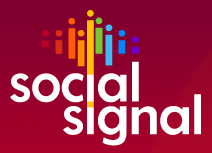- Home
- Blogs
- Rob Cottingham's blog
- LexPublica aims to bring open-source principles to the practice of law
The law is an RSSLexPublica aims to bring open-source principles to the practice of law
- 10 July, 2009
- 1 comments

Social media are often called a disruptive innovation: one that surprises markets and, often, threatens market leaders.
A few nights ago, at Vancouver's seventh Democamp (blogged wonderfully by Raul Pacheco here), I caught a glimpse of what may be the latest facet of that disruption.
It was nestled among a series of other fascinating demonstrations - including our friend Kris Krug's use of NetVibes as a personal media monitoring platform; Anahita, a Joomla-based social network platform; and BuddyPress, which turns WordPress MU into a social network. All very cool.
But the thing that really caught my attention was the upcoming service LexPublica.
If a substantial part of your business involves preparing simple standard legal documents, you may want to put down any hot beverages at this point.
LexPublica is the brainchild of lawyer Martin Ertl and open-source developer Zak Greant. Their goal is "opening up the world of legal knowledge to everyone" - starting with an online community where you'll be able to get plain-language contract templates for free.
Here's how Zak and Martin describe it:
No one can afford lawyers. Individuals, professionals and small businesses can’t afford lawyers. Startups can’t afford lawyers. Big companies with large budgets for legal services can’t afford lawyers. Even lawyers complain, in all earnestness, that they can’t afford lawyers.
LexPublica aims to solve this problem by opening up the world of legal knowledge to everyone.
The first practical step we’ll take is to make common contracts available free of charge. These will include things that most of us need, such as employment agreements, website development agreements and non-disclosure agreements (NDA’s for short). The contracts will be written in plain English and have supporting guides to help you use them properly.
Along with the contracts, we’ll provide other information about contracts and the law to help you make informed decisions. With that, you can also make a better decision about when you want do prepare a contract yourself and when you want to get a lawyer.
This isn't a philanthropic venture - this duo is completely open about their commercial intentions. It's another example of a phenomenon that Wired editor Chris Anderson described: a growing economy premised on the way the Web makes it possible to give away valuable content at, effectively, no cost.
The people who should be nervous about this may not be lawyers - people will still need to have documents tailored to their particular needs and jurisdictions, and heaven knows there's a lot more to the legal profession than just drawing up contracts. (Somewhere in the bowels of a large law firm, a weary articling student just looked up from her computer screen long enough to laugh mirthlessly - "HA!" - and then returned to the stack of contracts she's drawing up.)
Instead, the folks I imagine would be the most unhappy about this - at least in the short term - are the ones who sell preprinted legal templates, kits and forms.
Then again, one of the most fascinating things about the social web is its unpredictability. Maybe the biggest group of adopters will be people who otherwise wouldn't be using legal documents at all, but who discover contracts aren't that intimidating after all... and the result might be a dramatic expansion in business relationship rigour across the board.
Or maybe some part of the legal profession will take this idea and run with it.
Or maybe the community that springs up around LexPublica will itself give rise to something fascinating and unforeseen.
We'll be watching LexPublica with interest - and not just as a social media case study, but as a potential business resource. We have more than just the occasional contract to draw up ourselves, after all.

Work Smarter with Evernote

Get more out of Evernote with Alexandra Samuel's great new ebook, the first in the Harvard Business Press Work Smarter with Social Media series!



Comments
Raul says
Thanks SO much for the linkage and for the kind words, Rob.
I completely agree. Social media can be disruptive innovation I think (I believe it is Schmidt and Druel 2008 question which ones are the disruptive innovations and which ones are not but I'm sure social media IS disruptive).
The question is - how long will it take for Lex Publica's impact to be assessed? I'm dying to know :)